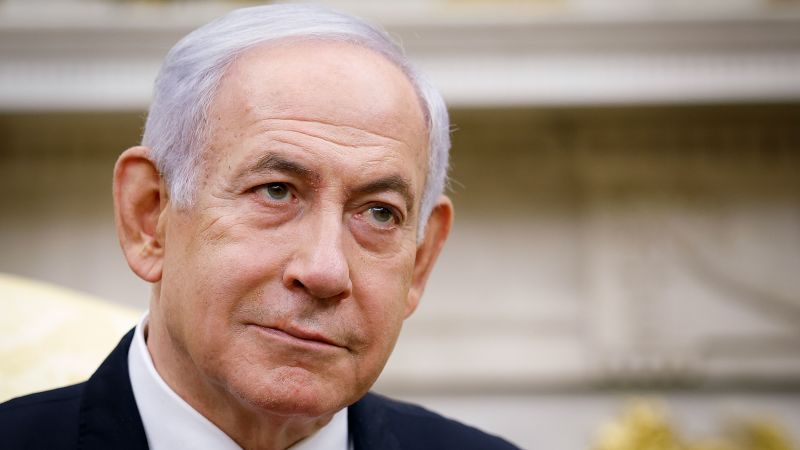Netanyahu's Strategic Shift: Hostage Liberation in Gaza Amid Iran Operation's Aftermath

"Netanyahu's Strategic Shift: Hostage Liberation in Gaza Amid Iran Operation's Aftermath"
In a bold declaration from a Shin Bet security facility in southern Israel, Prime Minister Benjamin Netanyahu announced that Israel's recent military maneuvers in Iran have unlocked "many opportunities," notably the potential liberation of hostages held in Gaza. "As you probably know, many opportunities have opened up now following this victory," Netanyahu stated on Sunday, indicating a significant pivot in Israel's strategic priorities. "Firstly, to rescue the hostages. Of course, we will also need to solve the Gaza issue, defeat Hamas, but I believe we will accomplish both missions."
Netanyahu's remarks signify a notable shift from his longstanding focus on the outright defeat of Hamas, which he has consistently described as Israel's "supreme objective." This recalibration comes in response to mounting pressure from various quarters, including the families of the hostages, opposition politicians, and a substantial segment of the Israeli public, all urging a more pronounced emphasis on the hostages' return.
The Hostages Families Forum Headquarters swiftly reacted, advocating for a comprehensive deal to secure the release of all 50 hostages and bring an end to the ongoing conflict in Gaza. "What is needed is release, not rescue. This difference of one word could mean the difference between salvation and loss for the hostages," the forum emphasized, underscoring the delicate semantics that could shape the fate of those held captive.
Netanyahu also alluded to "wider regional opportunities," hinting at potential expansions of the Abraham Accords, which have already facilitated Israel's normalization of relations with several Gulf states. This broader geopolitical context underscores the multifaceted nature of Israel's strategic recalibrations.
Amidst these developments, pressure mounts from the United States, with President Donald Trump urging a ceasefire agreement. Following the conclusion of the Iran operation, Trump has been vocal in his calls for a resolution in Gaza, advocating for the return of the 50 hostages, at least 20 of whom are believed to be alive. In a fervent social media post, Trump implored, "MAKE THE DEAL IN GAZA. GET THE HOSTAGES BACK!!!"
Trump's involvement extends beyond diplomatic pressure; he has also interjected into Netanyahu's legal battles, dismissing the corruption charges against the Israeli leader as a "POLITICAL WITCH HUNT." This intervention has led to a temporary postponement of Netanyahu's trial, granted after a confidential court session revealed changes in the "evidentiary structure."
Amidst the diplomatic flurry, US envoy Steve Witkoff has proposed a 60-day ceasefire, coupled with the release of 10 living hostages and 18 deceased ones, in exchange for Palestinian prisoners. This proposal aims to set the stage for broader negotiations towards a lasting ceasefire, a key demand from Hamas.
Despite Israel's military successes against Iran, which have opened new diplomatic avenues, the conflict's human toll remains staggering. Over 56,000 Palestinians, including more than 17,000 children, have perished in Israeli strikes, according to the Palestinian Ministry of Health. The grim reality was underscored on Sunday as Israeli strikes on Jabalya al-Balad and Jabalya Al-Nazaleh claimed at least 15 lives, with emergency workers reporting that many remained trapped under the rubble.
As Netanyahu navigates this complex geopolitical landscape, the interplay of military strategy, diplomatic negotiations, and domestic pressures continues to shape Israel's path forward. The evolving narrative underscores the intricate balance of power, policy, and public sentiment in a region perpetually on the brink.
🔮 Fortellr Predicts
Confidence: 85%
The shift in Netanyahu's strategic focus towards the liberation of hostages in Gaza is likely to have immediate and far-reaching implications in both the geopolitical and domestic arenas. Initially, Netanyahu's prioritization is expected to quell some domestic unrest and pressure from hostage families and opposition politicians. By publicly emphasizing a strategic recalibration, Netanyahu may temporarily restore some public confidence in his leadership. However, achieving the stated goals without inciting further conflict will be challenging, given the complex interplay of regional actors such as Iran and Hamas. Diplomatically, Netanyahu will likely intensify efforts to broaden Israel's relationships through potential expansions of the Abraham Accords. This could facilitate a multi-layered negotiation approach where regional allies play a role in hostage release efforts, thereby enhancing Israel’s geopolitical leverage. Trump's public support for a resolution in Gaza may synergize with these diplomatic endeavors, nudging both the Israeli and Palestinian sides toward concessions, albeit under international scrutiny. Simultaneously, the security apparatus, notably the Shin Bet, will escalate its operational readiness to either facilitate or prevent potential rescue operations based on real-time intelligence. This dual strategy combines diplomatic overtures with fortified intelligence operations, which could lead to short-term successes such as a partial agreement on hostage release. Long-term, however, the fundamental challenge remains: achieving a durable peace in a historically volatile region, while domestic pressures continue to influence Israel's strategic calculus.